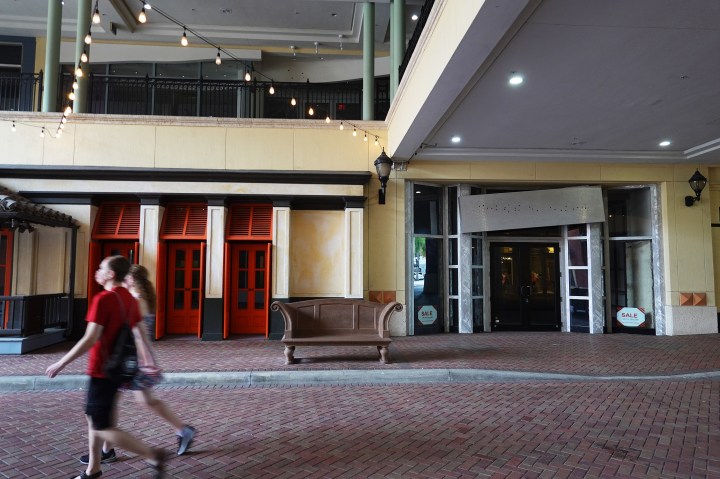
Do landlords get tax credits for empty buildings?

This is just one of the stories from our “I’ve Always Wondered” series, where we tackle all of your questions about the world of business, no matter how big or small. Ever wondered if recycling is worth it? Or how store brands stack up against name brands? Check out more from the series here.
Li Wright from Chicago asks:
Why do municipalities allow commercial landlords to get tax credits for empty buildings? Why don’t the cities tax or penalize landlords who purposely keep their buildings vacant?
Empty retail storefronts abound across the country, with vacant commercial space becoming a more pressing issue as the COVID-19 pandemic led to a rise in unoccupied buildings.
Governments are trying to find the balance between ensuring that landlords rent their space, while also helping them avoid the risk of going out of business. Cook County in Chicago, for example, provides landlords with some form of tax relief even if it’s not a tax credit, per se, explained Joshua Drucker, an associate professor of urban planning and policy at the University of Illinois Chicago.
The Cook County Assessor’s Office can lower the assessed value of your property, which will in turn (generally) reduce your property taxes.
But to qualify, the building must not be “serving its intended use due to conditions outside the control of the property owner,” according to the Cook County Assessor’s Office.
An owner would qualify if, for example, they “made good faith efforts to lease/rent the property but no lease has been signed,” or if there were a natural disaster. There’s also a 24-month cap on how long you can receive relief.
“In some sense, it’s not fair to tax a location that’s not being used. It has lower market value,” Drucker said, explaining why they get relief.
But Drucker added that relief shouldn’t last forever, noting that there are economic consequences.
“Vacancies make an area look less attractive. They’re sort of a blight on the commercial landscape,” he said.
That could then lead to the devaluation of nearby properties. Drucker noted even if you’re fair to one property owner, another property owner’s real estate could become worth less. And it prevents someone from setting up shop in that building.
A paper from the Joint Center for Housing Studies at Harvard studies looked into why landlords would want to keep their storefronts vacant. “We conclude that in the long run, a primary driver of retail vacancy in dense urban areas is the fact that landlords are willing to forgo rents today in order to preserve the option to lease their space to someone else (who might pay higher rents) tomorrow,” Erica Moszkowski, one of the study’s co-authors, explained.
Real estate law varies by region in the U.S., but in some areas there are measures in place in to prevent landlords from keeping their buildings vacant.
Howard Chernick, a professor emeritus of economics at Hunter College and the Graduate Center at the City University of New York, said that some cities have considered or imposed a vacancy tax on commercial property owners.
Washington, D.C. for example, has one in place aimed at tackling blight. And San Francisco recently imposed one last year, with the sponsor of the measure saying that it was aimed at encouraging landlords to rent out their property, reported the San Francisco Chronicle.
But experts have raised concerns about how effective taxes like these are. Governing, a D.C.-based news publication that covers local and state governments, reported that it can depend on the area. Joan Youngman, a senior fellow with the Lincoln Institute of Land Policy, told the publication that if it’s in a “hot market,” the landlord might continue waiting for another renter, while a soft market might mean the property will end up falling “into disrepair.”
There’s a lot happening in the world. Through it all, Marketplace is here for you.
You rely on Marketplace to break down the world’s events and tell you how it affects you in a fact-based, approachable way. We rely on your financial support to keep making that possible.
Your donation today powers the independent journalism that you rely on. For just $5/month, you can help sustain Marketplace so we can keep reporting on the things that matter to you.












